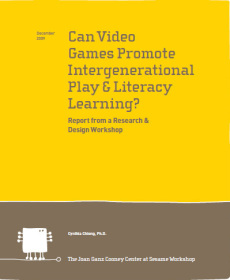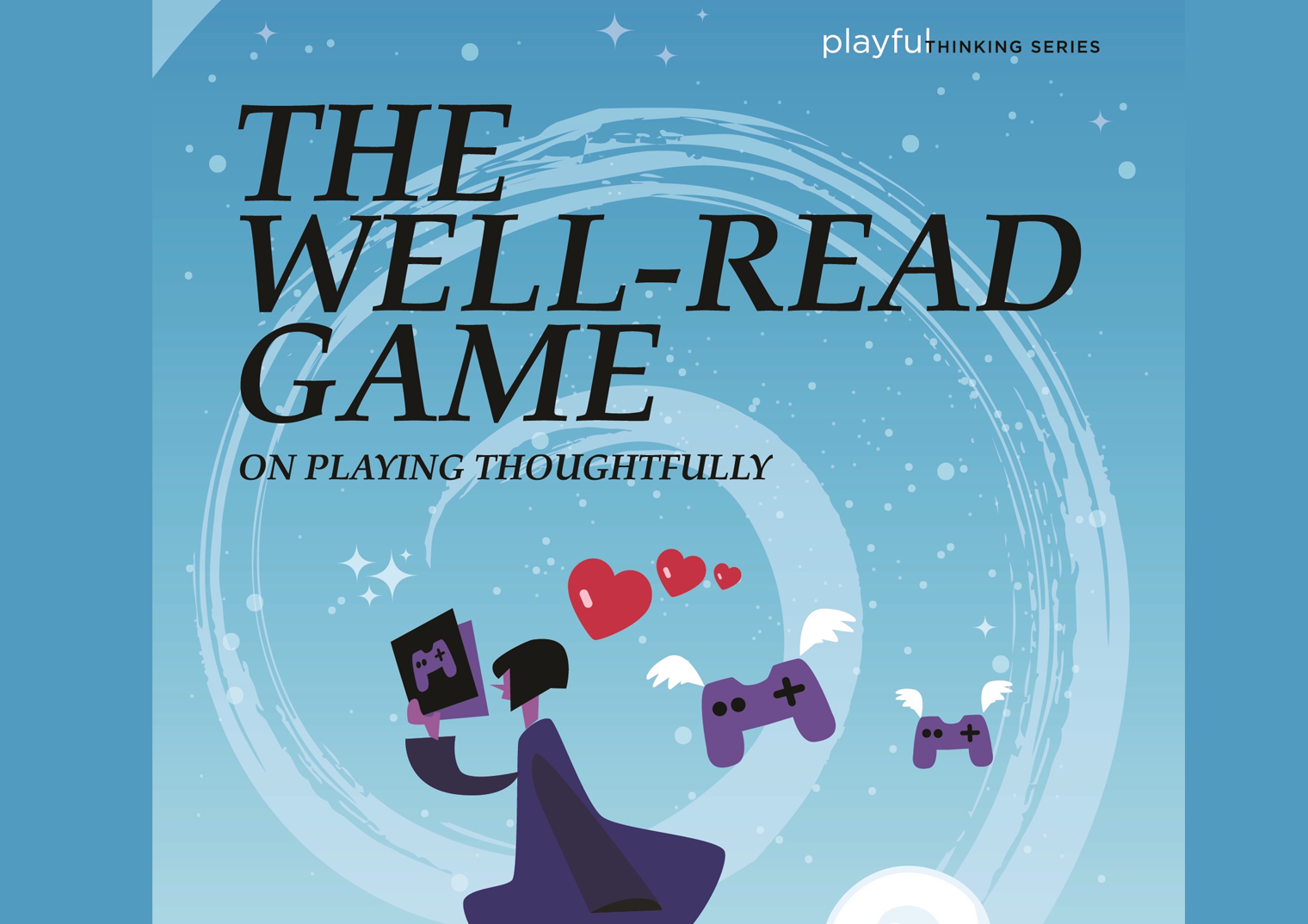
Forty years of Sesame Street research has consistently demonstrated greater learning benefits when children co-view an educational television program, compared to viewing alone. Might benefits also accrue when adults and children use educational games together?
Together with its partners, the Game Innovation Lab at the University of Southern California, and the University of Michigan School of Education and Learning Sciences, the Cooney Center, with the support of the Corporation for Public Broadcasting, convened two workshops in which experts in cognition, developmental psychology, educational technology, and game design developed strategies to use intergenerational play to accelerate learning for children who are struggling to master literacy skills in the primary grades. The Cooney Center also conducted field research with the Game Innovation Lab at USC to examine adult-child play patterns and what opportunities exist to promote literacy learning. Dr. Cynthia Chiong compiled findings from the second workshop and field research in the report, Can Video Games Promote Intergenerational Play & Literacy Learning? The report shares the latest research on adult-child play patterns with both digital and analog games and research-based design principles for creating intergenerational play patterns that help children learn in a variety of scenarios and settings.




